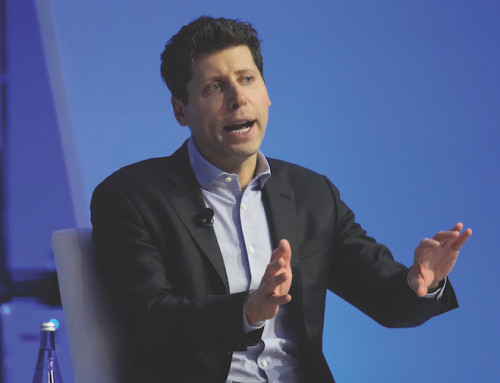One of the hottest markets in the artificial intelligence industry is selling chatbots that write computer code.
Some call it “vibe-coding” because it encourages an AI coding assistant to do the grunt work as human software developers work through big ideas.
Others dislike that term, but analysts say there’s no question that those tools are transforming the job experience for many tech workers amid a rivalry between leading AI companies to make the best one.
“The essence of it is you’re no longer in the nitty-gritty syntax,” said Cat Wu, project manager of Anthropic’s Claude Code. “You’re not looking at every single line of code. You’re more trying to communicate this higher-level goal of what you want to accomplish.”
Wu added, however, that “vibe-coding” is not a term she uses. “We definitely want to make it very clear that the responsibility, at the end of the day, is in the hands of the engineers.”
Anthropic last week launched the latest version of its flagship Claude chatbot, boasting that Claude Sonnet 4.5 will be the “world’s best” for coding and other complex tasks.
Large language models behind generative AI chatbots such as Claude, ChatGPT and Google’s Gemini are capable of many things, from homework help to organizing meal plans, but the “top use case” for most businesses has been in coding and software engineering, said Gartner analyst Philip Walsh.
“That is often the first thing large organizations go after,” Walsh said. “I think there’s broad recognition among these AI model providers that coding is really where they’re getting the most traction.”
While Walsh said Anthropic’s products are a favorite for software developers, it is hardly the only player in a rapidly growing and consolidating market.
San Francisco and the surrounding Bay Area remain the center of the battle to make the best AI coder, home not just to rivals OpenAI and Anthropic but startups such as Anysphere, Cognition and Harness, as well as Microsoft-owned GitHub.
“This is the most competitive space in the industry right now,” said Windsurf CEO Jeff Wang, speaking by video call from the startup’s office in Mountain View, Calif.
Windsurf’s coding assistant launched less than a year ago, but as its popularity grew, hitting 200,000 users in its first two months, it found itself at the center of a bidding war between tech giants.
OpenAI sought to acquire it. Then, Google scooped up Windsurf’s founders and research team, leaving a shell of a company that Cognition acquired in July.
“It’s been a really volatile time at Windsurf,” Wang wrote to employees in July as he announced the merger with Cognition, maker of the AI coding assistant Devin.
Two months later, the two companies’ integration is “going really well,” Wang told The Associated Press from a conference room called New Kelp City, named for a setting in SpongeBob SquarePants.
Some AI coding assistants automatically finish the code that human programmers are writing, much like the “autocorrect” features that suggest the next lines of an email or text.
More advanced tools known as AI agents are given more autonomy to access computer systems and do the work themselves.
Anthropic said its new Sonnet 4.5, on a test before its public release this week, was able to code autonomously for more than 30 hours on a project for London-based startup iGent.
Anthropic’s first coding assistant was developed largely by accident when the company’s Boris Cherny built an internal toy project and started using it to accelerate his own work. Then the rest of his team adopted it.
“Over time, we realized that it was just virally spreading within Anthropic,” Wu said.
Anthropic has said coding is the top use for Claude, with about 39 percent of its users saying they use the chatbot for coding. OpenAI, by contrast, says writing is the most common work task for ChatGPT, with coding and self-expression as more “niche” activities.
OpenAI has sought to catch up, introducing in September a new GPT-5-Codex that it says can work for longer on complex coding tasks. Among the most coveted customers for big AI model developers are coding startups like Anysphere, maker of the popular coding tool Cursor, which relies heavily on Anthropic’s Claude and recently cemented a partnership with OpenAI.








